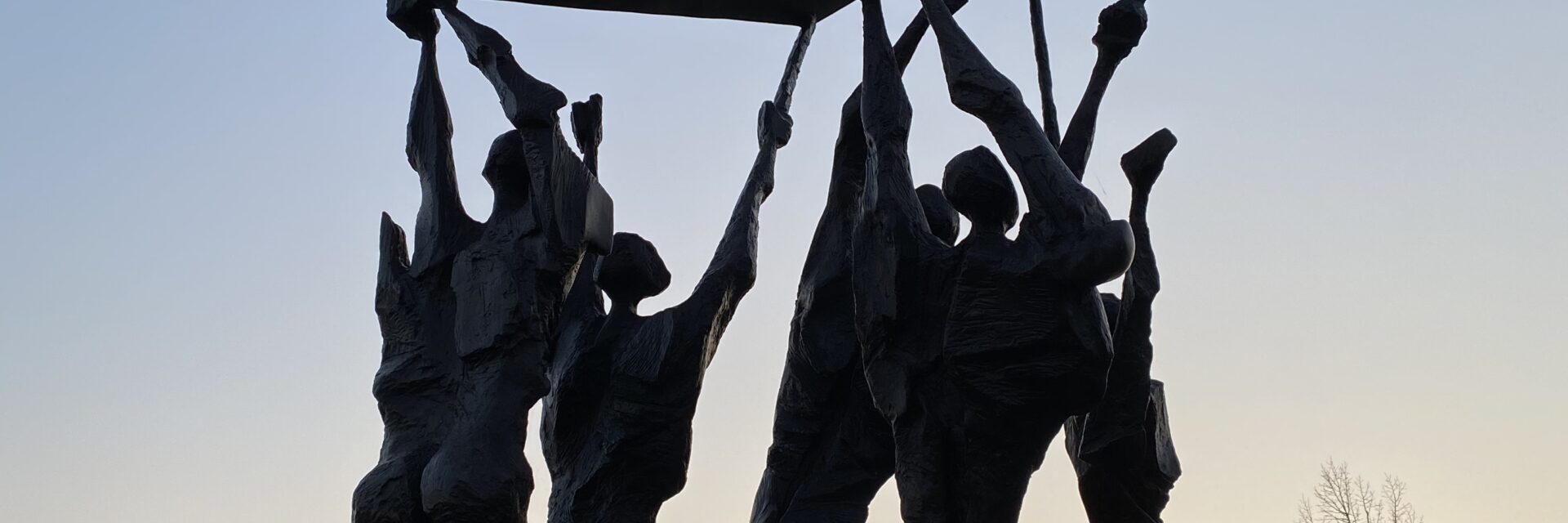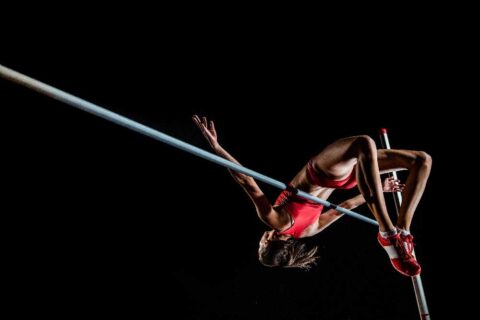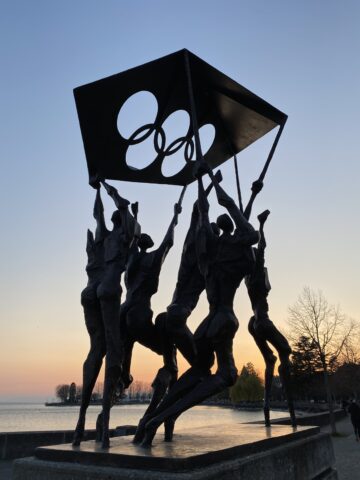Compilation of cases from the CAS Ad Hoc Division during the Paris 2024 Olympics
By Dr. Despina Mavromati
2024 was a year rich in major sporting events, including the Summer Olympic and Paralympic Games in Paris (from 26 July 2024 to 11 August 2024, “Paris 2024 Olympics”). The Paris 2024 Olympics generated numerous interesting disputes that were decided by the CAS Ad Hoc Division present on-site, including the well-publicized Jordan Chiles dispute that is still pending before the Swiss Federal Tribunal (SFT) in Switzerland.
In a nutshell, the CAS ad hoc Panels dismissed four applications for being filed outside of the 10-day jurisdictional window in which the CAS ad hoc Division has jurisdiction over a dispute related to the Olympics. In four other cases, the CAS ad hoc Panels considered that the disputes fell within the “field of play doctrine”, which would only allow them to review the case for very limited grounds. In most cases, the Panels examined the proportionality, the reasonableness or the well-founded of the challenged decision, and upheld four applications after interpretation of the applicable regulations (you can also see my overview of all cases heard by the CAS ad hoc Division during the Paris 2024 Olympics here).
In the first case of the ad hoc Division CAS 24/01, the CAS panel dismissed the application filed by Jamaican athlete Nayoka Clunis. Notwithstanding the fact that the omission to include her name in the pre-entry list submitted to World Athletics (WA) was due to an administrative error by the Jamaican Athletics Association, World Athletics had already reallocated the slot to another athlete. The Panel found that it lacked jurisdiction as the dispute had arisen prior to the 10-day jurisdictional window leading to the Paris 2024 Olympics.
In CAS OG 24/02, the ad hoc Division the Cook Islands Aquatics Federation and NOC filed an application against World Aquatics against the decision not to allocate a ‘Universality Place’ under the World Aquatics rules for the Paris 2024 Olympics to Wesley Tikiairki Roberts for the swimming competition. The Sole Arbitrator found that the relevant provisions were reasonable and consistent, limiting the Universality Places to athletes who have not competed in more than two prior Olympic Games or are under 30 years old in order to encourage new athlete participation. In this case, the Sole Arbitrator accepted her jurisdiction holding that World Aquatics did not have a formal internal appeal process that would need to be exhausted prior to the application to the CAS.
The third case of the ad hoc Division CAS OG 24/03 dealt with an application of a Saudi weightlifter Mahmoud Al Hamid seeking an exceptional entry to the Paris 2024 Olympics because he was not able to participate in qualifying competitions due to a provisional suspension following a positive anti-doping test (A sample), that was however not confirmed by the test of the B sample. Similar to the first ad hoc case, the Sole Arbitrator found that the CAS lacked jurisdiction as the dispute arose in May 2024, largely beyond the 10-day jurisdictional window leading to the Paris 2024 Olympics within which the CAS ad hoc Division has jurisdiction.
In this interesting fourth case of the ad hoc Division CAS OG 24/04 related to eligibility, the Israeli Football Association and player Roy Revivo sought permission to participate in the Israeli football team’s first Olympic match and any subsequent matches. The player was suspended for two matches by UEFA and FIFA subsequently decided that the suspension should apply to the Paris 2024 Olympics based on the UEFA Disciplinary Regulations. The Panel dismissed the application finding that FIFA had the power to enforce sanctions imposed in confederation competitions that have not been served in the competition in which they are imposed, in its own tournaments, notwithstanding the wording of the decision that it would apply to “UEFA representative team competition matches”.
In the fifth, sixth and seventh cases, the CAS ad hoc Division upheld the challenges of three Brazilian athletes, Livia Avancini, Max Batista, and Hygor Bezerra, who challenged their disqualification due to failure to meet additional anti-doping testing requirements. The issue stemmed from the misinterpretation of World Athletics rules by Brazil’s anti-doping body, which resulted in incomplete testing for the applicants. The panel found that such misinterpretation amounted to “truly exceptional circumstances” under the applicable rules and set aside the challenged decisions, allowing them to compete in the Paris 2024 Olympics.

In CAS OG 24/08, Czech cyclist Jitka Čábelická challenged her non-selection for the Paris 2024 Olympics, arguing that the nomination criteria were unfairly altered to favor another athlete. The panel found however that the national federation had acted within its discretion and allowed for a “comprehensive assessment process”, which favoured domestic race performance over international rankings, and dismissed allegations of bias, bad faith or procedural violations.
The ninth case (CAS OG 24/09) heard by the ad hoc Division was the appeal filed by the Canadian Olympic Committee and Canada Soccer against the decision issued by the FIFA Disciplinary Committee to issue a six-point deduction on the Canadian women’s soccer team for the football tournament at the Paris 2024 Olympics due to the use of flying drones over training sites of other competing teams. In this very interesting case, the panel dismissed arguments raised by the applicants and found that the sanction for the violations of the FIFA Disciplinary Code (against the principles of fair play, security and safety and reputation) was not “grossly disproportionate” nor did it fail to consider mitigating factors.
In CAS OG 24/10, the panel dismissed the application by French wrestler Tatiana Debien against the IOC decision rejecting the additional quota place for France in her weight category, finding that the dispute arose beyond the 10-day jurisdictional window, namely, when the quota places were published.
The CAS OG 24/11 related to the application of athlete Adrien Coulibaly against the decision rendered by the French NOC not to register him for the 4×400 m relay event at the Paris 2024 Olympics. In this case the Sole Arbitrator found that the dispute fell outside the 10-day jurisdictional window provided for in the CAS AHD Rules and had therefore no jurisdiction.
In the twelfth case, CAS OG 24/12, the panel dismissed the application of the Spanish weightlifter David Sánchez López against the decision of the IWF Independent Member Federation Sanctioning Panel (Sanctioning Panel), which had imposed a financial sanction on the Turkish Weightlifting Federation after three of its athletes were found guilty of anti-doping rule violations. The athlete considered that the offences should have led to all athletes being sanctioned and banned from the Paris 2024 Olympics, which would in turn lead to his own qualification and participation in the Games. As was expected, the Sole Arbitator dismissed the application, considering that the applicant lacked standing to challenge the decisionand, in any case, the IWF Sanctioning Panel could, pursuant to the applicable regulations, impose sanctions or exclude athletes at its own discretion.
In CAS OG 24/13, Swiss athlete Dany Brand challenged his exclusion from the men’s 400m hurdles event at the Paris 2024 Olympics, requesting to be declared eligible to compete further to the withdrawal of a French competitor due to injury. The Sole Arbitrator dismissed the appeal after considering that World Athletics did not have the authority to declare the athlete eligible and that the French NOC had not acted arbitrarily by failing to reallocate the quota place to another athlete.
In the CAS OG 24/14, the CAS ad hoc Division heard a challenge filed by Brasilian football player Marta against a sanction she received by the FIFA Disciplinary Committee for serious foul play. Even though the athlete acknowledged that the decision made by the referee in the field of play was final, and hence non reviewable by the panel, she disputed the qualification of the sanction as a “serious foul play” rather than an “unsporting behaviour”. The Sole Arbitrator dismissed the application holding that the athlete had not adduced evidence to establish bad faith or bias in order to overturn the field of play decision.
The applications of two Romanian gymnasts, Ana Maria Bărbosu and Sabrina Maneca-Voinea and the Jordan Chiles case

In the fifteenth and sixteenth cases, the CAS ad hoc Division heard the application filed by the Romanian Gymnastics Federation and two Romanian gymnasts, Ana Maria Bărbosu and Sabrina Maneca-Voinea, who challenged the Women’s Floor Exercise Final results at the Paris 2024 Olympics. The challenge sought to conclude that the 0.1 penalty assessed to Sabrina Maneca-Voinea was given without legal basis and requested to increase her score. At the same time, they challenged the timeliness of the inquiry by the coach of US Gymnast Jordan Chiles, which resulted in an increased score for Chiles, moving her to third place and awarding her the bronze medal.
As it was expected, the Panel confirmed the field of play doctrine for the 0.1 penalty in the case of Sabrina Maneca-Voinea, which could not be reviewed as such. However, and most interestingly, the same Panel ruled that challenge of the inquiry for violation of the one-minute rule contained in the applicable regulations did not fall within the field of play doctrine – and even if it did – the same result would be reached as the case would fall under one of its exceptions. As such, the Panel decided that, based on the evidence heard during the proceedings, Jordan Chiles’ inquiry was filed beyond the one-minute rule foreseen in the applicable regulations and should not have been considered, reinstating Ana Maria Bărbosu’s original score that brought her to the third place, Sabrina Voinea to the fourth place and Jordan Chiles to the fifth place. At the same time, the Panel dismissed the request to award multiple bronze medals, as falling outside its jurisdiction. As will be seen below, these cases are currently pending before the SFT.
In CAS OG 24/17, the CAS ad hoc Division heard the application of Indian wrestler Vinesh Phogat who challenged the United World Wrestling decision to replace her because of her failed second weigh-in (exceeding the weight limit by 100 grams) during the second-day weigh-in before the gold medal match that was due to start in the evening of the application day. The Sole Arbitrator dismissed her application, considering that the applicable rules were clear and did not provide room for interpretation, so that failing the weigh-in should lead to elimination from the entire competition and not only the final round.
In CAS OG 24/18, the Italian Swimming Federation filed a protest after the exclusion of Italian water polo player Francesco Condemni during the quarterfinal for a “violent action” found by referees to breach competition rules. The referees imposed a four-minute penalty against Italy, who ultimately lost the game. As expected, the Sole Arbitrator considered that this decision falls within the field of play doctrine and that the referees acted within their discretion, dismissing the application.
In the last case registered by the ad hoc Division (CAS OG 24/19), the Sole Arbitrator head the challenge of Slovenian canoeist Benjamin Savšek and the Slovenian Olympic Committee regarding a 50-second penalty imposed by the Chief Judge during the Men’s Canoe Slalom C1 final at the Paris 2024 Olympics, which dropped Savšek’s rank from third to eleventh. They argued the penalty was arbitrary, violating due process and fairness. Again, the Sole Arbitrator considered that the case fell within the field of play doctrine and the decision was in line with competition rules, with no evidence of improper conduct or unfairness.





